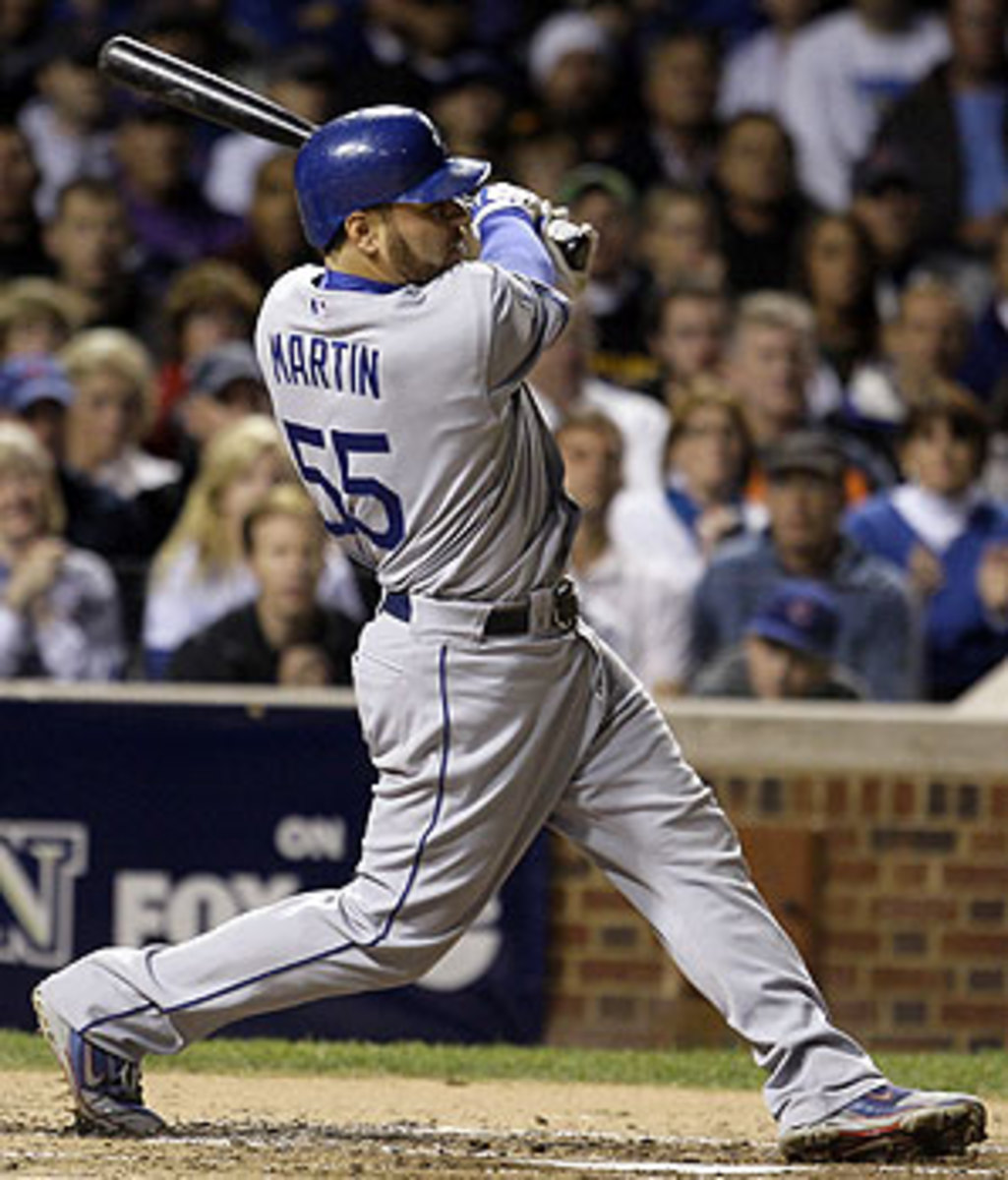Young Dodgers, old manager a perfect match in Hollywood
In the final week of spring training, when Joe Torre was still getting used to his new shade of blue, he looked out over the field at Angel Stadium before an exhibition game and was reminded why he wanted to be a manager in the first place. Scattered around the field were about half-a-dozen players under the age of 25, either taking batting practice, fielding ground balls or shagging flies. "It's the fun part," Torre said. "It's watching young talent develop and grow. It's looking in the eyes of young players and sensing when they reach the point that they come to the ballpark knowing what to expect, what to do."
The Dodgers' young players took about five months to reach that point, but they made it just in time. The Dodgers are in the National League Championship Series, not only due to the emergence of Manny Ramirez, but also to the maturation of James Loney, Andre Ethier, Matt Kemp, Russell Martin, Chad Billingsley and Jonathan Broxton, who have come of age all at once and all together.
When Torre arrived in Los Angeles, Loney, Kemp and Ethier were basically still prospects. Martin, Broxton and Billingsley were promising young players. Today, they are budding stars on the hottest team in baseball. Ramirez has clearly been the catalyst, but the kids are the core, the biggest reason to believe this club will contend even if Ramirez leaves as a free agent in the off-season.
After 12 years in New York, dealing with the tabloids and the Steinbrenners, it was easy to assume that Torre came to Los Angeles because he wanted a softer media market and a lower-maintenance owner. But Los Angeles does not offer much of a break in either respect. What really distinguished the Dodgers was their group of young talent, which reminded Torre of the bumper crop he inherited in New York.
The Yankees hired Torre in 1995, the same year that Derek Jeter, Mariano Rivera, Andy Pettitte and Jorge Posada made their major-league debuts. He grew with those players, and they grew with him, as the Yankees made 12 straight playoff appearances and captured four World Series titles. Torre cannot expect to replicate that kind of success in Los Angeles, but he is trying to replicate the formula.
Torre is best when dealing with young players. Last year, the Dodgers had a fractured clubhouse, split along generational lines. In one corner were Jeff Kent and Nomar Garciaparra. In the other were Kemp and Loney. The friction reached a boil in September, as the Dodgers tumbled from the pennant race. When Torre gathered his players this spring, he told them: "You don't have to be best friends. You don't have to go to dinner together. You don't even have to like each other. But when you're on the field, you have to unite."
Torre gave the veterans every opportunity to play early in the season, respecting their experience and past contributions. But he recognized that the team could not win big without a comprehensive youth movement. He gradually phased out Andruw Jones, Juan Pierre, Garciaparra and finally Kent, all high-priced players on the downside of their careers. In the playoffs, Kent and Pierre have one at-bat each; Garciaparra has not played and Jones is not active. The Dodgers have some marquee names sitting on their bench, ready to pinch hit.
How Torre has handled this potentially inflammatory situation, without inciting trouble in the clubhouse, is further proof of his deft touch. It is reminiscent of his earliest days in New York, when he convinced Dwight Gooden, Darryl Strawberry and Tim Raines to shelve their egos and accept limited roles for the good of the team. His ability to blend young and old, without marginalizing anybody, has long been one of his greatest strengths.
Torre likes to say that Ramirez has also been a positive influence on the Dodgers' young players, which is still a little hard to believe. But there is no question that they are more comfortable with Ramirez leading them than Kent. Since Ramirez arrived, the Dodgers have taken on his personality -- flamboyant, fun and completely unpredictable. Ramirez is 36, but he appeals to this new generation of Dodgers, in part because he acts every bit as young as they do.






